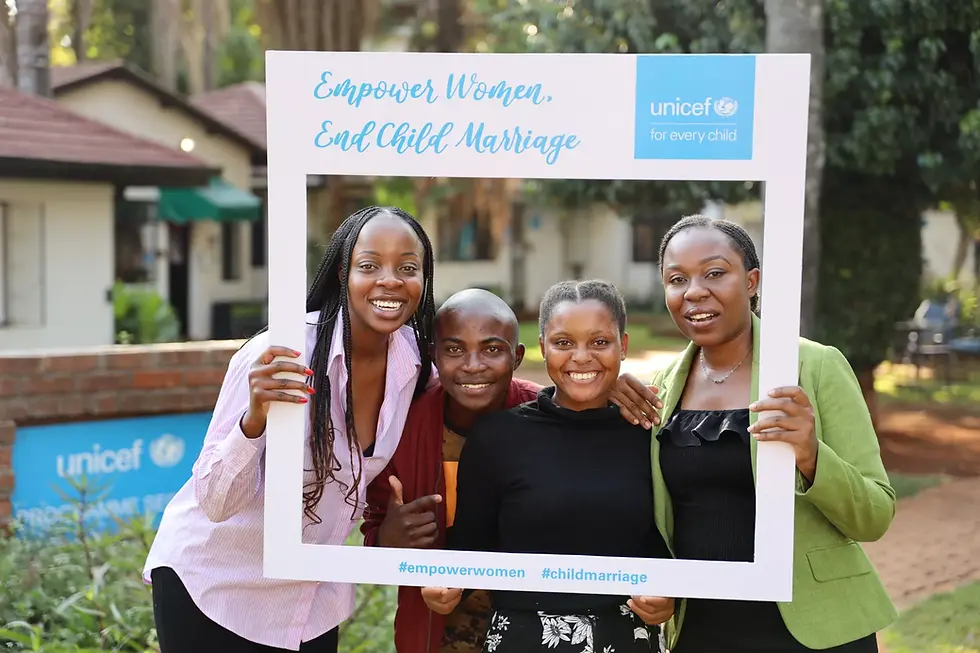UNICEF’s Combat Against Child Marriage in Zimbabwe
- UNICEF Team uOttawa
- Mar 19, 2025
- 2 min read
Updated: Aug 1, 2025
Meryem Mohammed - Awareness Content Reporter

In the face of a decrease in a harmful practice, child marriage remains omnipresent. Zimbabwe, located in southeast Africa has implemented legal frameworks and international commitments to safeguard children's rights, yet young girls are still forced into marriage before they reach the age of 18. By addressing the root causes of child marriage, fostering community engagement, and promoting education, UNICEF is helping build a future where every girl in Zimbabwe can achieve her full potential, free from the constraints of early marriage
Context
According to recent statistics, about one in three girls in Zimbabwe are married before 18 years old (Sayi & Sibanda, 2018). Child marriage can be seen as a persistent issue in rural areas as traditional customs and limited access to education and economic opportunities exert greater influence. In rural areas, where poverty rates are higher, child marriages tend to be more pronounced. Moreover, poverty plays a significant role, as parents may see marriage as a way to reduce their financial burden or secure their daughters' future. (Chinyoka & Ganga 2011). Families can also be under more pressure to arrange early marriages as cultural beliefs can create a link between a girl's worth and her capacity to get married and have children. Early marriage is viewed in some cultures as a means of protecting a girl's honor and family reputation, particularly in cases where premarital pregnancy is feared.
Child marriage has serious and complex repercussions. For instance, young girls who marry have a higher chance of dropping out of school, which will limit their economic opportunities in the future. Additionally, they are more likely to experience domestic violence and potentially fatal health complications associated with early pregnancies. Because of their situation, they may experience a lack of autonomy in their lives and experience poor mental health.
UNICEF's Role
In Zimbabwe, UNICEF has taken a lead in the fight against child marriage. To address the underlying causes of child marriage and defend the rights of girls, the organization works in conjunction with the government, civil society organizations, and local communities.
For the prevention of children being married off too young, UNICEF promotes the implementation of laws to protect them. In 2016, Zimbabwe's Constitutional Court ruled that no person under the age of 18 could legally marry, a decision that UNICEF supported and continues to promote. The organization also welcomed the 2022 ruling by Zimbabwe's High Court, which declared it unconstitutional to deny abortion services to girls under 18 who are victims of rape, recognizing the severe impact of forced pregnancies on young girls.
UNICEF also plays a significant role in education. The group works to keep girls in school and supports their access to high-quality education. To lower the financial barriers that frequently result in early marriage, UNICEF collaborates with communities and schools to offer resources like school supplies and scholarships. In January 2024, the organization also started the FairChance pilot program, aiming to empower young women by giving them opportunities to gain work experience in Zimbabwean companies. UNICEF helps girls develop the skills, self-esteem, and goals that lessen their susceptibility to early marriage by empowering them via education.




Comments